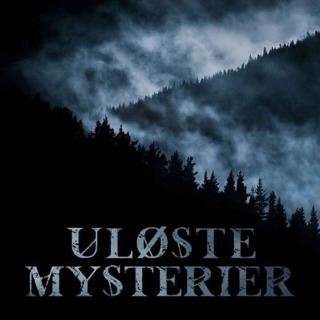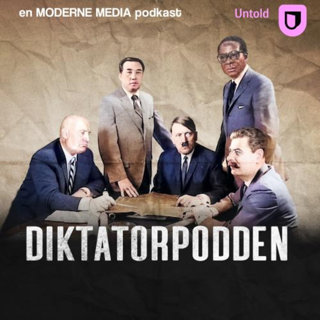
The Aristocracy
Melvyn Bragg and guests discuss the British aristocracy. The Greeks gave us the word aristocracy; it takes its root from ‘aristo’, meaning best and ‘kratos’, meaning rule or power. And for more than five hundred years Britain was ruled by a class that was defined, at the time, as the best. They founded their ascendancy on the twin pillars of land and heredity and in terms of privilege, preferment, power, style and wealth, they dominated British society. As the Earl of Chesterfield confidently informed the House of Lords in the mid-18th century, “We, my lords, may thank heaven that we have something better than our brains to depend upon”. What made the British Aristocracy the one of the most successful power elites in the world? And what brought about its decline?With David Cannadine, Director of the University of London’s Institute of Historical Research and author of The Decline and Fall of the British Aristocracy; Rosemary Sweet, Lecturer in History at the University of Leicester; Felipe Fernandez-Armesto, Professorial Research Fellow at Queen Mary, University of London.
19 Jun 200342min

The Art of War
Melvyn Bragg and guests discuss the history and philosophy of warfare. The British historian Edward Gibbon wrote: “Every age, however destitute of science or virtue, sufficiently abounds with acts of blood and military renown.” War, it seems, is one of mankind’s most constant companions, one that has blighted the lives and troubled the minds of men and women from antiquity onwards. Plato envisaged a society without war, but found it had no arts, no culture and no political system. In our own time the United Nations struggles but often fails to prevent the outbreak of conflict. But how has war been understood throughout the ages? Who has it served and how has it been justified? Is war inherent to human beings or could society be organised to the exclusion of all conflict?With Sir Michael Howard, Emeritus Professor of Modern History at the University of Oxford; Angie Hobbs, Lecturer in Philosophy at the University of Warwick; Jeremy Black, Professor of History at the University of Exeter.
12 Jun 200342min

The Lunar Society
Melvyn Bragg and guests discuss the Lunar Society. In the late 18th century, with the ascendant British Empire centred on London, a small group of friends met at a house on the crossroads outside Birmingham and applied their minds to the problems of the age. Between them they managed to launch the Industrial Revolution, discover oxygen, harness the power of steam and pioneer the theory of evolution. They were the Lunar Society, a gathering of free and fertile minds centred on the remarkable quartet of Matthew Boulton, James Watt, Joseph Priestly and Erasmus Darwin. The potter Josiah Wedgwood, another member, summed up the ethos of this group when he said that they were ‘living in an age of miracles in which anything could be achieved’.But how did the Lunar Society operate? What was the blend of religious dissent, entrepreneurial spirit and intellectual adventure that proved so fertile and how did their discoveries permanently change the shape and character of this country?With Simon Schaffer, Reader in History and Philosophy of Science at the University of Cambridge; Jenny Uglow, Honorary Visiting Professor at the University of Warwick and author of The Lunar Men: The Friends who Made the Future; Peter Jones, Professor of French History at the University of Birmingham.
5 Jun 200328min

Memory
Melvyn Bragg and guests discuss the function and significance of memory. The great writer of remembrance, Marcel Proust, declared “We are able to find everything in our memory, which is like a dispensary or chemical laboratory in which chance steers our hand, sometimes to a soothing drug and sometimes to a dangerous poison”. The memory is vital to life and without it we could not be the people we are, but can it really contain the sum of all our experience? Is it a repository constantly mounting events waiting to be plucked to consciousness, or if not, then under what criteria are memories turfed out?With Martin Conway, Professor of Psychology at Durham University; Mike Kopelman, Professor of Neuropsychiatry at King's College London and St Thomas’ Hospital; Kim Graham, Senior Scientist at the Medical Research Council’s Cognition and Brain Sciences Unit.
29 Mai 200327min

Blood
Melvyn Bragg and guests discuss blood. For more than 1500 years popular imagination, western science and the Christian Church colluded in a belief that blood was the link between the human and the divine. The Greek physician, Galen, declared that it was blood that contained the force of life and linked the body to the soul, the Christian Church established The Eucharist – the taking of the body and blood of Christ. In our blood was our individuality, it was thought, our essence and our blood lines were special. Transfusion threatened all that and now itself is being questioned.Why is it that blood was used to define both man and messiah? And how has the tradition of blood in religious thought been affected by the progress of medicine?With Miri Rubin, Professor of European History at Queen Mary, University of London; Dr Anne Hardy, Reader in the History of Medicine at the Wellcome Trust Centre for the History of Medicine at University College London; Jonathan Sawday, Professor of English Studies at the University of Strathclyde.
22 Mai 200341min

The Holy Grail
Melvyn Bragg and guests discuss the Holy Grail.Tennyson wrote:“A cracking and a riving of the roofs,And rending, and a blast, and overheadThunder, and in the thunder was a cry.And in the blast there smote along the hallA beam of light seven times more clear than day:And down the long beam stole the Holy Grail”.The sacred allure of the Grail has fascinated writers and ensnared knights for a thousand years. From Malory to Monty Python, it has the richest associations of any artefact in British myth. But where does the story spring from? What does it symbolise and why are its stories so resolutely set in these Isles and so often written by the French?With Dr Carolyne Larrington, Tutor in Medieval English at St John’s College, Oxford; Jonathan Riley-Smith, Dixie Professor of Ecclesiastical History at Cambridge University; Dr Juliette Wood, Associate Lecturer in the Department of Welsh at the University College of Wales in Cardiff.
15 Mai 200328min

The Jacobite Rebellion
Melvyn Bragg and guests discusses the Jacobite Rebellion. In the summer of 1745, a young man in a small French frigate landed on the West Coast of Scotland. It was Bonnie Prince Charlie who began his campaign to become king of Scotland and England. He had seven followers amongst his shipmates and took to the Highlands to raise an army from the Scottish clans: “The Highland clans with sword in hand Frae John o Groats tae AirlieHae tae a man declared to standOr fa wi Royal Charlie”.Or so the old Jacobite song goes. But why was the latest scion of the Stuart dynasty such a favourite with the Scottish Highlanders? And did Bonnie Prince Charlie ever have a real chance of gaining the throne of England? With Murray Pittock, Professor of English Literature at the University of Strathclyde; Stana Nenadic, Senior Lecturer in Social History at Edinburgh University; Allan Macinnes, Burnett-Fletcher Professor of History at Aberdeen University.
8 Mai 200342min

Roman Britain
Melvyn Bragg and guests discuss the Romans in Britain. About 2000 years ago, Tacitus noted that “the climate is wretched”, Herodian said, “the atmosphere in the country is always gloomy”, Dio said “they live in tents unclothed and unshod, and share their women” and the historian Strabo said on no account should the Romans make it part of the Empire because it will never pay its way. But invade they did, and Britain became part of the Roman Empire for almost four hundred years.But what brought Romans to Britain and what made them stay? Did they prove the commentators wrong and make Britain amount to something in the Empire? Did the Romans come and go without much trace, or do those four centuries still colour our national life and character today?With Greg Woolf, Professor of Ancient History at St Andrews University; Mary Beard, Reader in Classics at Cambridge University; Catharine Edwards, Lecturer in Classics and Ancient History at Birkbeck College, London University.
1 Mai 200328min





















